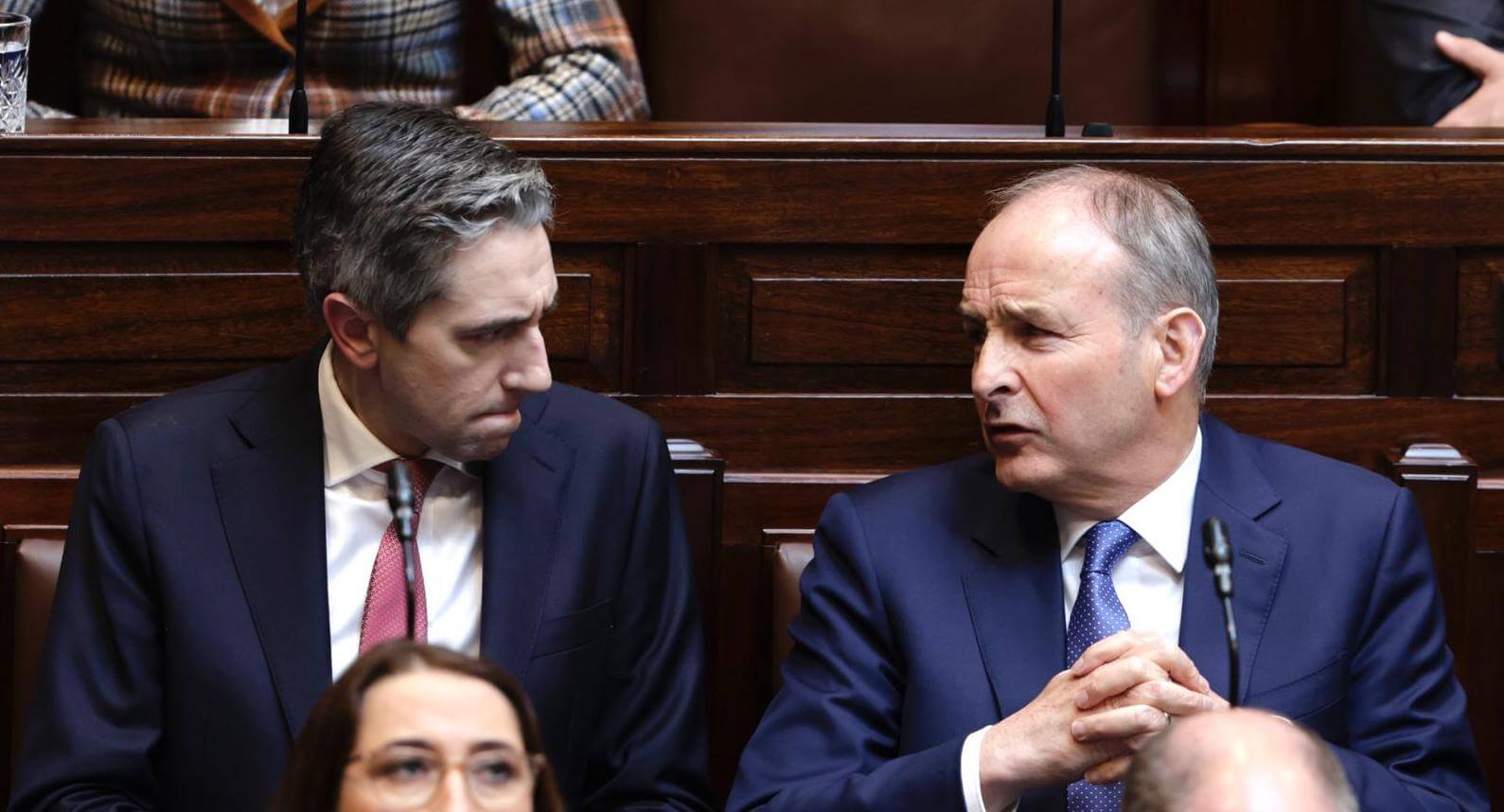It is no surprise that July’s general election brought significant changes to the composition of the House of Commons. With 132 members having stood down before the vote, including 22% of Conservative MPs, and prominent names from across the political divide including Michael Gove, Dame Margaret Hodge, Sir Graham Brady, Barbara Keeley, and Caroline Lucas, the 2024 election was an opportunity, not just for a visual change in the make-up of the House, but a profound ideological shift.
334 brand new MPs entered the Commons after the election – 211 from the Labour Party. Whilst the much expanded Liberal Democrat group, the presence of Reform UK’s five, and the Green Party’s four MPs will all undoubtedly change how Westminster operates and is perceived, the true driving force behind this shift will come from the sheer mass of new minds on the governing benches.
Of this cohort, which newcomers could be considered ‘ones to watch’? How do their backgrounds and skill sets match with the Starmer Government’s manifesto pledges, and how can they help shape the political landscape over the next five years and beyond? Here are some names to keep an eye on.

Nesil Caliskan MP
Constituency: Barking
Caliskan is a history-making addition to the Commons. Succeeding Dame Margaret Hodge to represent the safe Labour seat of Barking, she is the first-ever Turkish Cypriot woman to sit on the green benches. A former Enfield Council leader, Caliskan comes to the House with a wealth of experience in how regeneration in her borough can be achieved. During her leadership Caliskan vowed to make Enfield ‘deeply green’ and approved plans to commence a project that will deliver nearly tens of thousands of homes. Additionally, she ushered through a development that hopes to produce a further 10,000 homes at Meridian Water that has already seen residents begin to move in. In her maiden speech, Caliskan voiced her support for the Government’s commitment to address the housing crisis, especially because “it is one of the drivers of poverty.
The average house price in Barking has gone up by 21% over the last five years, and rents have soared. There are thousands of people in temporary accommodation, and a quarter of my constituents live in the under-regulated private rented sector.” She continued by mentioning her desire to see more houses built – a fundamental ambition of the Labour Government. Caliskan has a strong track record on delivering affordable housing in the borough she formerly led. Some of these developments divided opinion, but her experience in succeeding in spite of this means she could be an effective voice that is able to explain the benefits of large developments to an often sceptical local electorate.
Caliskan may also use her platform as the first female Turkish Cypriot MP to champion issues affecting that community. It is estimated that 300,000 Turkish Cypriots live across the UK, many in London. 2024 marked an important year for the island of Cyprus. 50 years prior, the Greek military orchestrated a coup in Cyprus which provoked a response from Türkiye leading to an ethnic division with Turkish Cypriots living in the North, and Greek Cypriots in the South. This division continues today and is subject to significant UN efforts to find a resolution. Caliskan joins Bambos Charalambous in Parliament, a Greek Cypriot, as an important voice to speak for the Turkish Cypriot perspective and champion the community’s issues. She might be able to work with the Labour government and the Foreign Office to ensure their concerns are addressed.

Dr. Allison Gardner MP
Constituency: Stoke-on-Trent South
Dr. Gardner has a greatly impressive career outside of politics that serves her well to sit in a Parliament that will consider the UK’s role in the development of artificial intelligence (AI). Her expertise comes at a time when Britain is seeking to lead the ‘AI revolution’. In its manifesto, the Conservative Party stated that AI “will accelerate human progress in the 21st century, just as the steam engine and electricity did in the 19th century. The UK is well positioned to spearhead this transformation and is already leading global work on AI safety.” Labour committed to “ensure our industrial strategy supports the development of the Artificial Intelligence (AI) sector.” Both demonstrate that AI is not a political football, but a fundamental part of the UK’s cross-sector technological development. Dr. Gardner’s experience is invaluable in this regard.
She hails from a military family. Born in Singapore, Dr. Gardner’s father served in the navy and her mother as a factory manager. A biology teacher of over 25 years, she was until recently a member of the IEEE Standards Association – a body established to develop technology across industries, including AI capabilities. During this time, she worked as a Senior Scientific Advisor for Artificial Intelligence within the NHS. With a background in science, having achieved a PhD in Molecular Biology, she lectured in bioinformatics at Keele University, before serving as Honorary Senior Research Fellow specialising in AI and machine learning. In 2018, she co-founded ‘Women Leading in AI’, an organisation to champion female engagement in the future of AI, and using this platform she has worked at the highest levels to advocate for commonsense and ethical regulation and use of AI.
She brings a wealth of insight into the rapidly expanding and changing landscape of AI advancement and regulation. Her expertise in AI ethics and governance must be looked towards when it comes to considering how AI is funded and by who, and its uses. As a leader in her field, we look forward to listening to her contributions about this critical industry.

Louise Jones MP
Constituency: North East Derbyshire
Jones succeeded Housing Minister Lee Rowley in this seat which had been Conservative since 2017. In her acceptance speech, she noted that he was “such a hard working MP for the past seven years.” Defending a seat that he won in an election where a few bricks from the Red Wall fell to Theresa May, and then retaining it in 2019 would have required significant effort. No doubt Jones is aware she has a similar task on her hands.
Jones enters the Commons with a strong track record of service in the British Army. Having grown up in Leicestershire into a family of farmers and educators, she brings an understanding of the concerns of these crucial groups in society to the table, all underpinned by her military background. From studying Chinese at the University of Edinburgh, she entered the Civil Service and was seconded to the Department for Transport. Just a year later, she joined the Army as an Intelligence Officer in both Land and Joint environments, first in Germany, and then during operational deployment to Afghanistan. With this wealth of expertise, she is a strong voice to listen to on all matters relating to defence, security, and veterans affairs – particularly bringing a much-valued female perspective to the discussion.
Not only has she offered valuable insights over the war in Ukraine, but she has also provided assessments of military strategy – notably when the UK withdrew from Afghanistan. She said that “sometimes there is a narrative that the war in Afghanistan was unwinnable from the start…. This may be true in whole or in part, but the decisions made by senior commanders have not been examined in enough detail and I thought this should be challenged. In the military, we spend a lot of time examining tactics of WW2 tank battles, but I have never seen a serious internal debate over counter-insurgency doctrine, just an acceptance that forward operating base (FOBs), six month roulements, whack-a-mole strike operations, and focusing on infantry training rather than logistics or engineering support to the Afghan forces were the obvious way to go about it.”
Keir Starmer can clearly see her political potential – choosing to offer Jones a platform when he laid out Labour’s commitments to the Armed Forces. She is a voice within the party that can offer a constructive critique of UK defence and military strategy, whilst having the lived experience to provide unique insights. Such was and still is so valuable as the party climbs out from the Corbyn-era in which its support for the military and commitment to Trident and NATO was brought into question by some.

Naushabah Khan MP
Constituency: Gillingham and Rainham
Khan has enjoyed an illustrious political career. Many in Kent may recognise her name from her campaign to unseat Mark Reckless in the by-election called following his defection to UKIP. She faced defeat in the same seat at the following year’s general election. Despite these set-backs however, Khan has demonstrated resilience and continued her campaign in a traditionally Conservative county. A councillor on Medway Council since 2015, Khan gained her seat from the Liberal Democrats in a difficult election for the Labour Party. She served for eight years before being appointed to the important position as Cabinet Member for Housing. Once again, the Labour benches have another voice to look towards when debating this vital issue, and particularly a voice in a part of the country where developments are being increasingly proposed.
Khan could also provide valuable insights in response to this Summer’s far-right riots. A child of Pakistani parents who moved to Gillingham in the 1970s, she may be able to speak of her and her family’s experience during a time of racial tensions across the country. Her voice is an important one to listen to when it comes to building bridges within communities, and fostering positive attitudes towards minority groups in the UK.
She is an MP with a diverse background. She’s worked in retail and on factory floors, has sold everything from carpets to double glazing, to working in accountancy. She has been battle-tested at a by-election, is well-versed in one of the central pillars of Labour’s manifesto (housing), and has a bold plan to champion her community, particularly the issue of a lack of investment in Gillingham High Street, NHS waiting times, and protecting the Thames Estuary from sewage pollution. The latter is a particularly significant issue in the constituency that is directly adjacent to that patch of water, so expect Khan to be a flagbearer to challenge this.

Andrew Lewin MP
Constituency: Welwyn Hatfield
A former Liberal Democrat who left the party citing its role in the trebling of university tuition fees whilst in the Coalition Government, Lewin has a background in communications at the UK’s largest housing association, Clarion.
Lewin represents Welwyn Hatfield – a constituency that is greatly important for Labour in two respects. Firstly, Labour must win places such as Welwyn in order to secure a majority, but also it is symbolic of Labour’s housing plans. In his maiden speech, Lewin said that “the constituency is anchored by two new towns that flourished under a previous Labour Government – Hatfield and Welwyn Garden City. The growth of these cities played an important role in the rebuilding and reimagining of life in our part of the country after the horrors of the Second World War. I believe that if we are to succeed in growing our economy, we have to rediscover the ambition and the vision that was embodied by those who designed and carefully planned our two great towns.” The Garden City, Lewin cites, was developed by Ebenezer Howard – the founder of the garden city movement. Lewin credits Howard saying “his immaculately planned and tree-lined streets, such as Parkway in Welwyn Garden City, are still true to his vision from nearly 100 years ago.”
Labour has pledged to create a “generation of new towns.” As part of Labour’s planning reforms, most of them will be built on low-quality Green Belt land, which the party refers to as the ‘grey belt’. This strategic choice aims to minimise the impact on high-value Green Belt land while effectively addressing the urgent housing needs. Starmer and Secretary of State for Housing, Angela Rayner, may do well to look towards Lewin and Welwyn Hatfield of what these new towns can eventually become. It is entirely possible that Lewin could be approached to represent the Government when the topic of new towns arises – potentially in a ministerial position where he can speak with experience, being the MP for an old ‘new town’.

Amanda Martin MP
Constituency: Portsmouth North
One of the most significant results from the general election was Penny Mordaunt’s loss in Portsmouth North. Defeated by a teacher of almost 25 years and a mother of three, Amanda Martin has already spoken in the Commons asking what assurances the Government can make to ensure that the planning system is reformed to allow for more affordable, social, and council homes. This is a considerable and important issue she raises as Portsmouth is a greatly dense city. Martin served as trustee of the National Education Museum and the Teachers Education Group Trust and served as former President of the National Education Union. With this wealth of experience in education, she can bring to the table an awareness of key shortcomings and challenges facing the sector.
Another group she is already devoting great attention to are veterans and the armed forces. Figures estimate that over 37,000 armed forces personnel and veterans live in Portsmouth – a significant number considering her margin of victory (780 votes). She has already been deeply involved in their community, volunteering her time to raise money for the Poppy Appeal and participating in a local Armed Forces Day Flag Raising Ceremony. Whilst not from a military background, she has the experience representing a considerable population of veterans and armed forces personnel and the platform to champion their interests.
Portsmouth North is an important seat to win for Labour. It is a bellwether that has voted the same way as the rest of the country at every general election since February 1974. Labour may use it as a case study in the future to assess its national prospects, and may look to Martin to see how they can tailor and target their UK-wide campaign.

David Pinto-Duschinsky MP
Constituency: Hendon
Defending the most marginal constituency for Labour is the son of a Holocaust survivor and economist, David Pinto-Duschinsky. With a 4,000 majority secured by the Conservatives at the last election, it would be sensible to assume that Labour would have trounced the party in Hendon. However, securing just a 15 vote majority, Pinto-Duschinsky is the party’s symbol that they were not able to take anything for granted.
Former President of the Oxford Union, Pinto-Duschinsky’s background largely stems from experience at McKinsey and Ernst & Young. Politically, he is a Fabian, hailing from the centre-left gradualism and reformism of the Labour Party. He co-authored a piece for the Fabian Society entitled ‘Facing Out: How Party Politics Must Change’. Whilst released in 2007, its message for Labour is incredibly timely – One of its recommendations is that Labour should adopt a more strategic view of how to drive the long-term entrenchment of a progressive consensus… and “needs to become more geared towards shifting public opinion and building long-term support for Labour… we must have a welcoming attitude where different shades of opinion are valued and no-one claims the exclusive right to the ‘Labour’ perspective… a rigidly unified party can tie the Party’s identity too closely to specific policy decisions on which there may be real disagreement within the movement and public” (pg. 58-60). Considering the Labour Party’s internal debate immediately after the Corbyn era of leadership, Pinto-Duschinsky’s analysis (an entire 13 years prior), indicates he is acutely aware of how Labour wins power and governs effectively.
Representing the second most populous Jewish constituency in the country, Pinto-Duschinsky, himself of the Jewish faith, has already taken a leading role in tackling antisemitism. He previously said that “I talk to people who talk about having to hide their kippot, to families whose kids have had to take off their school blazers because they have Magen Davids on them. I’ve even talked to people who’ve taken down their mezuzahs. This is an incredibly tough climate, and it breaks my heart, but it makes me even more determined to stand up for our Jewish community.” Keir Starmer’s transformation of Labour came with a heavy emphasis on rooting out antisemitic behaviour. The party’s victory in the most Jewish areas of the country in Golders Green, Chipping Barnet, and Hendon is testament to their efforts. Especially whilst the war in Israel and Gaza continues, Pinto-Duschinsky seems as though he will take an important role in ensuring that both Jewish and Muslim communities feel safe in their communities – and has a powerful family backstory to reference in doing so.

Dr. Peter Prinsley MP
Constituency: Bury St Edmunds & Stowmarket
Dr. Prinsley’s victory in Bury St Edmunds marked one of the most stunning results of the election in East Anglia. Many believed it impossible that a seat held by the Conservatives since 1885 would flip to Labour, however local NHS surgeon Dr. Prinsley challenged this assumption.
Originally from Sheffield, Dr. Prinsley moved to Norfolk where he enjoyed a 25 year career as an NHS surgeon and consultant. He has commented that he is “an NHS doctor with a sense of social responsibility and fairness. My father was an RAF and NHS doctor and my son is an A&E NHS doctor. My sister is a nurse. We are an NHS Labour family.” According to the British Medical Journal, Dr. Prinsley is one of 10 doctors who have been elected to sit in the House of Commons. The presence of this expanded group of senior medical professionals comes at a time of great concern and challenge for the NHS. In his maiden speech, he said he “will bring [his] experience of 42 years as an NHS doctor to this place to do something to help mend a service [that has been] described as broken.” He continued by expressing the need for urgent funding for the replacement of West Suffolk Hospital stating it was being supported by scaffolding and that “bird droppings had fallen through the roof onto sterile surgical instruments.” In a recent column in Suffolk News, Dr. Prinsley said he has “huge optimism on health” citing the “brilliant scientific advances” that will transform UK healthcare – and as someone with decades of experience in this field, alongside his continuing service (he still serves as a surgeon during recess), Dr. Prinsley will be a key voice to listen to when NHS reform and support is discussed
He also offers a blueprint for how Labour can win and retain support in a rural, agricultural part of the country. He has highlighted how Bury St Edmunds & Stowmarket has a “rich tradition of agriculture and food production”, and championed issues affecting more rural communities such as the frequency of bus services. With Labour’s goal to build 1.5 million new homes by 2029, many of these will be in seats such as Bury St Edmunds. With so much local concern for such developments having sufficient supporting infrastructure, Dr. Prinsley can represent a strong voice advocating for the concerns by many in his rural constituency – especially by expressing the need that more rural parts of the country must have improved access to transport and healthcare services should these areas be subject to development.

David Taylor MP
Constituency: Hemel Hempstead
A graduate of Warwick University, Taylor looks to be a voice to listen to on the topic of international development in this Parliament. The founder and former chair of the Labour Campaign for International Development from 2009 to 2013, Taylor should be central in any efforts by the Government to try and heighten the role of international development around the Cabinet table – especially after the Department for International Development was abolished in September 2020. Taylor also served as an Advocacy Advisor to the British Overseas Aid Group at Oxfam and was part of the charity’s drive to propose new goals and targets for its operations.
Taylor worked in the Office of Gordon Brown from 2010 to 2013. In this role, he immersed himself in the affairs of other countries across Asia. He shed a spotlight on the practice of child labour in Africa and worked closely with the former government in Myanmar to enhance education opportunities in the country. He played a key role in convening senior decision-makers in South Sudan and the wider international community to discuss investing more in the country’s education, and he advised Brown during his tenure as UN Special Envoy for Global Education. With interests ranging from democracy in Pakistan to human rights and education in Bangladesh, Taylor has exhibited interests that stand him in a good position for a ministerial role in the future.
Alongside the leadership he has demonstrated on women’s and girls education, and international development, he also represents a seat that Labour will be keen to retain. Somewhat of a bellwether, he serves a constituency that has voted the same way as the country in every election since October 1974, bar one – 2005. Labour recognised it needed to win over voters in towns at this year’s general election and Taylor is a product of this approach. No doubt, he holds a greatly valuable key to the party’s success in areas like his – the party would do well to consult him on.

Katie White MP
Constituency: Leeds North West
White was born and raised in Leeds, attending Leeds Girls’ High School, before undertaking a politics degree at the University of Glasgow in 2003. 20 years ago, White emerged on the political scene after a career with Friends of the Earth, having led a campaign that paved the way for the first Climate Change Act in the UK. The legislation, passed in 2008, commits the Government by law to reducing greenhouse gas emissions by at least 100% of 1990 levels (net zero) by 2050 and has largely set the scene for subsequent governments in regards to climate change. White’s actions were hugely consequential and in 2013, she was awarded an OBE for services to climate change engagement.
She has commented that ‘cross-party consensus’ on the issue and a network of groups who were engaged in local communities made the campaign to implement the Act successful. Since then, White has continued her career with the World Wide Fund for Nature (WWF), and within the Department of Energy and Climate Change.
The environment was more prominent than ever at the general election in July. White built a successful campaign on exhibiting her green credentials and was elected to serve as only the third woman in Leeds’ history. She views the Government’s commitment to climate positively, confessing that she cried after Keir Starmer’s 2022 conference speech because “it was the first time a leader had ever stood on the stage and put climate at the centre of their speech.” Closer to home, Leeds recently received an ‘A’ grade for Climate Action by the Carbon Disclosure Project (CDP). White was proud to champion ‘Otley 2030’, a community climate action group developing a climate and sustainability plan for the town. The group is responsible for developing a community larder, installing and bidding for solar panels, and paving the way for a green community.
White’s excitement for green policies comes with no illusion for the challenge at hand. She has admitted that social care and AI are both significant focuses for the new government, but her energy and enthusiasm for advancing green policies makes her certainly an influential voice on the topic in this parliament and beyond.
Each of these new members have the platform and the experience to effect some positive change to each of their sectors. With these new minds rising in the party, they present an exciting vision for the future and the team at College Green Group are excited to watch as they continue to champion their communities and contribute to important debates on topics ranging from education and the environment, to international development and the housing crisis.
Stay tuned for 10 more Labour MPs we think you should keep an eye on.






